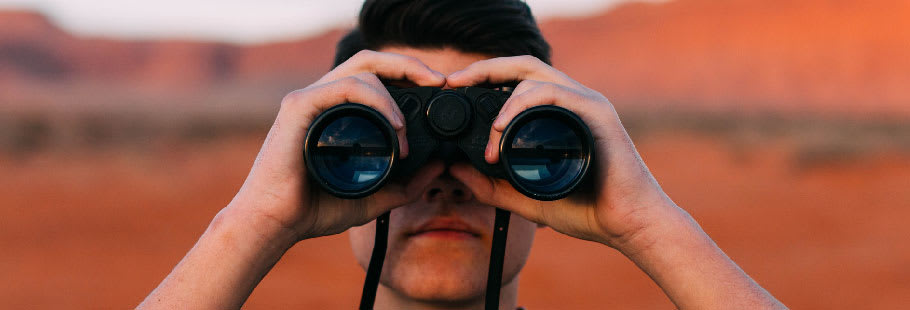10 Tips for Finding the Perfect PhD Project
A few years ago I was worrying about balancing PhD applications with the demands of my Masters project. I was told this would be doable, since I wouldn’t want to apply to more than 3 PhD opportunities.
Well, I actually ended up applying for 5 projects. And writing a dozen applications for them.
Looking back, I realise that there were indeed only 3 of these that I was interested enough to do, but I don’t actually regret applying for the other 2: they gave me a lot of insight into what I was really interested in and taught me about the application process for funded PhDs.
I’d like to share some of that insight and experience with you! So here are my top 10 tips on finding and funding your perfect PhD project:
It’s simple advice, but important. Make sure the projects you consider are ones you really care about, not just any old opportunities within your subject.
Find the area within your area which always makes you excited and that you always find yourself wanting to know more about.
#2 Decide whether and how much you are willing to move
This can be one of the things that will help you the most – or complicate your search.
Knowing whether you do or don’t want to move (and where feasible will be able to move to!) will drastically help your search and give you a direction (or, in my case, open up every door since I was willing to move).
This is also something which is important for your wellbeing whilst you are going through your PhD. For me, doing a PhD will be challenging enough: moving to a city I know I will enjoy will definitely help.
On the other hand, I would also advise you to keep other factors in mind. You probably don’t want to dismiss the perfect project, just because it might not be in your favourite place, so pros and cons should be balanced.
#3 Identify appropriate labs and / or departments
There are things you can do to find a PhD even before funded positions begin to be listed.
I started by looking at papers that I had read and found interesting in the area I wanted to pursue. I also looked at institutes with relevant neuroscience departments to find out what kind of research they were doing. Finally, I did a quick search for papers with key words that interested me the most.
This gave me an idea of what sort of places I should have my eyes on for possible projects, it also told me whether there were any labs which I would be really interested in working in.
#4 Contact the PI before you apply for a project
I’ve found this to be especially useful, particularly when it comes to competing for funded places.
Read the details for the principal investigator (or main PhD supervisor) and their project carefully and find questions which are not obvious. Learn what they are doing and ask them about it: How many people work in the lab? What are their positions? Would you be collaborating with any of them?
Ask them about details which are not obvious and show your interest for the project. Also ask if you can discuss the project over Skype. This will create a line of communication and will make them remember who you are when they’re going through applications. It will also help you determine whether you would enjoy having them as your supervisor.
#5 Get alerts for upcoming PhD positions
Honestly, this might have been one of the things that saved my Masters.
At the start of the year I signed up to hear about new PhD positions and looked at the emails I received on my commute to university or during lunch time. This avoided the temptation to spend hours trawling through listings – hours which should have been spent on my MSc project!
During my applications process I asked for help from everyone I thought would have some insight.
I asked my Masters supervisor about the best way to write emails to other PIs and what kind of questions could come up in interviews. I had more meetings than I can count with the careers service at my university to perfect my CV and cover letters. Me and my housemates would swap tips and cover letters to give advice, proofread and discuss every word of each email we would send to PIs.
I am endlessly grateful to all these people and without them I would have never achieved what I have. There’s no shame in not knowing everything and nothing wrong with asking for help. In most cases, people you approach will be more than willing to share the tips they have learnt.
#7 Get excited about the people, not just the project
Doing a short project in a lab with other people you don’t work very well with is not the best experience. Doing a full 3-4 year PhD in this position is unthinkable to me and one of the possible causes for projects not working as well as they could, leading to drop-outs and the potential for poor mental health amongst postgraduates.
This is why I did my best to get to know the supervisors and other people working in the labs I was applying to – and try and find whether I would be a good fit. This can take a while, but it’s worth it. I will soon be joining a lab where not only is the research extremely interesting, but I am also looking forward to working with my fellow researchers.
#8 Know that funding varies
In my search I was looking for funded projects. But not all projects are funded and not all funding is the same.
You will see advertised projects which do not have funding attached; I only looked at these if I thought I would love them. There are other projects that have competitive funding, which I found to be the most common. And then there is what I have come to think of as the ‘holy grail’: projects which have funding secured.
The first thing to consider is that what matters the most is how much you love the project.
If the project doesn't come with funding you may always be able to find it. If it’s competition-funded, your enthusiasm for the project will show through and you’ll be a top candidate. If the project comes with funding and you love the project then the supervisors should recognise this and – all other things being equal – may well pick you over others who are not as interested (this is also where contacting the PI’s before applying comes in handy).
#9 . . .and there’s usually more than one type
You might have been confused when I said I made 12 applications for 5 projects. The reality is that for the 3 projects I liked the most I made between 2 and 4 applications for funding for each project.
What we are not always told is that institutes and universities will often have several funding opportunities (besides options like the UK's doctoral loans), with different deadlines. And you can sometimes apply for several of them to work with the same supervisor on the same projects.
Although this dramatically increased the number of applications I wrote (and the time I spent on them), it also helped me to progressively improve and perfect each application and to be selected for interviews I wouldn’t have gotten if I had just applied to one of the funding bodies.
#10 You will probably ‘fail’ at least once – and that’s good
There will probably be projects you apply for which don’t lead to an interview. Or that you go to an interview for but aren’t picked. Or even occasions where you love the project but don’t feel you’ll fit alongside the people you’d be working with.
This is fine, this is good! As I have pointed out, every time you fill in an application or go to an interview will help you improve for the future. In my case, it also helped me refine my interests (“why am I writing this application? I don‘t think I want to do this project!”) and helped me develop patience and persistence (a lot of it).
You will eventually find your perfect project, in a lab or department you will love to work in. Once you’ve done so, DON’T GIVE UP! Persistence and patience will only give you more strength and experience. And don’t forget, everyone goes through this process. It might be disheartening at times but if it’s what you want to do persist and you’ll get there!
From finding a PhD to funding a PhD
Our newsletter will help you find the right opportunity
Editor's note: An earlier version of this blog was first published on 15/08/2018. We've checked and updated it for current readers.
How I chose my PhD
Looking for more advice on choosing between different PhD opportunities? Kirsty explains how she went about her decision making.

 Continue with Facebook
Continue with Facebook





